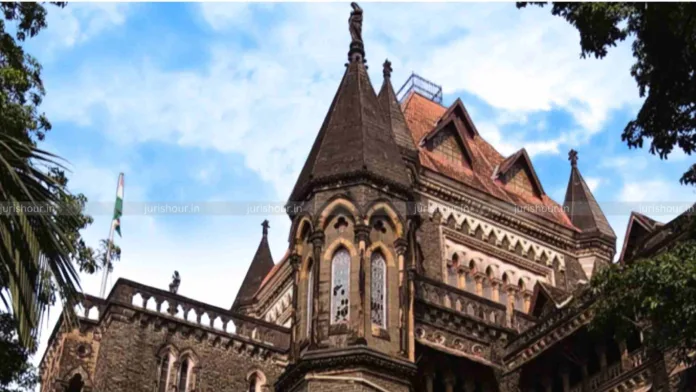The Bombay High Court has held that the low deterrent effect of the law has worked on a professional talent to become a habitual economic and financial offender, and this should be stopped in the larger interest of the country.
The bench of Justice M.S. Sonak and Justice Jitendra Jain has observed that since the record and submissions indicate prima facie commission of serious economic crimes, investigations must be undertaken by the law enforcement agencies.
The petitioner/assessee is a company formed and registered under the Companies Act, 1956.
On 29 August 2009, return of income was filed by the assessee declaring ‘NIL’ income. The return of income was selected for scrutiny assessment by issuing notice under Section 142(1) of the Income-tax Act, 1961.
On 28 December 2011, an assessment order under Section 143(3) was passed assessing the income of the respondent-assessee at Rs.10,73,52,550.
In the order it is stated that the respondent had prepared a profit and loss account and filed a tax audit report. In the assessment order, an addition under Section 68 of the Act was made amounting to Rs.10,73,52,553 under the head ‘Income from other sources’.
The addition was made on the ground that the credits appearing in the disclosed and undisclosed bank accounts of the respondent-assessee are unexplained, and since no details or explanation regarding the identity, source and genuineness of such deposits were submitted, the same were treated as unexplained cash credits.
The assessee admitted that he is merely an accommodation entry provider, and the receipts and payments appearing in the bank accounts are of the customers from whom amounts were received for giving accommodation entries. However, from the assessment order, it is evident that no details of such customers were ever provided to the Assessing Officer.
The respondent-assessee challenged the assessment order by filing an appeal to the Commissioner of Income-tax (Appeals)
The CIT(A) held that if the beneficiaries are identified by the appellant, the A.O. would adopt the rate of commission @ 0.37% for A.Y.2009-10 as it is in the earlier assessment year. In case the appellant fails to identify the beneficiaries in that case the amounts credited in the bank account of the appellant would stand confirmed as unexplained cash credit u/s.68 of the I. T. Act. In the result, the ground of appeal is partly allowed.
The Tribunal disposed of the appeal. In para 11 of its order, the Tribunal reduced the rate of 0.37% to 0.15% by merely following its own order for earlier assessment years.
The department contended that since the respondent-assessee did not give the details of the credits appearing in its disclosed and undisclosed bank accounts, the same stands unexplained and therefore, the addition made under Section 68 of the Income Tax Act is justified.
The department submitted that the CIT (A) finding on the issue of applicability of Section 68 of the Income Tax Act was not expressly challenged by the respondent-assessee before the Tribunal and therefore, no submissions on this count should be entertained. The CIT (A) was fair in restricting the addition under Section 68 only to those cases where the respondent-assessee failed to identify the beneficiaries of the amounts credited in the bank accounts.
The department submitted that the Tribunal was not justified in directing the adoption of 0.15% on all the deposits, whether explained or unexplained and thereby impliedly reversing the latter part of the order of the CIT (A), which confirms additions under Section 68 if beneficiaries are not identified. To that extent, the Tribunal’s order needs to be reversed.
The assessee admitted that the the respondent-assessee company is engaged in “a racket of illegal business of providing accommodation entries” and, therefore, queried the Court “How could such illegal transactions be recorded by maintaining any books of accounts?” The amounts credited in the bank account do not belong to the respondent-assessee but belong to its customers. Only the commission amount deposited in the bank accounts can be added as his income, which they have already offered for tax. Provisions of Section 68 are not applicable since credits in the bank account do not constitute credits in the assessee’s books.
“we will be failing in our duty as a Court of law if we do not comment on the accommodation entry provider, Mr. Mukesh Choksi through his web of shell companies and various admissions made by the counsel for the respondent-assessee. It is also important to note that Mr Mukesh Choksi, director of the respondent-assessee in his answer to question No.14 of the statement has admitted that he was a practicing Chartered Accountant but has surrendered the Certificate of Practice (COP) in 1993 and thereafter is only engaged in the business of providing accommodation entries. He has also stated that search action has been taken against him/his companies more than once,” the court observed.
The court reversed the Tribunal’s order and restore para 4.3 of the CIT (A)’s order dated 4 October 2012 subject to retaining the rate of commission at 0.15 % as adopted by the Tribunal.
Case Details
Case Title: PCIT Versus M/s Buniyad Chemicals Ltd.
Case No.: Income Tax Appeal No.1796 Of 2018
Date: 17 March 2025
Counsel For Petitioner: Suresh Kumar
Counsel For Respondent: Aditya Sharma
Read More: Bombay High Court Asks ICAI On Action Against CAs Without COP Engaged in Misconduct





